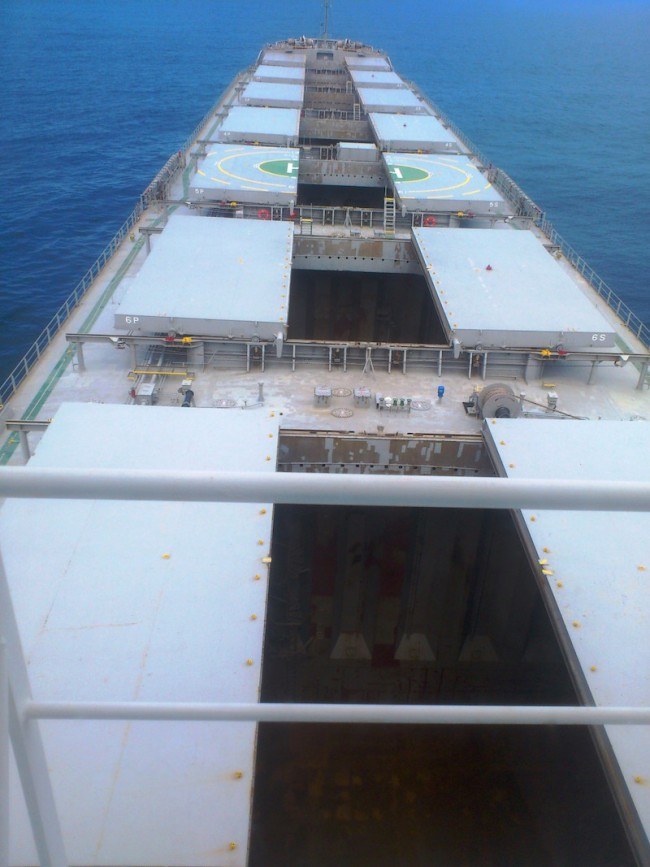

A dry cargo ship is a type of container or bulk carrier having several cargo holds or spaces where it can accommodate the cargo. All cargo holds in such ships are provided with a strong built lid which is known as hatch cover.
Cargo holds are fitted with hatch covers to prevent the contact of cargo with outer atmosphere i.e. air, moisture, weather and water and to avoid cargo from getting wet.
Another important function of hatch cover is to maintain the watertight integrity of the ship at all sea going condition by not allowing any ingress of water inside the cargo hold and disrupting the stability of the ship.


Hatch covers of cargo hold are generally made from light weight steel or high tensile steel. They are fitted over a steel bar of the hold with a rubber packing inserted in between them to avoid water ingress.
A proper routine maintenance to be performed by qualified officer on ship which must includes-
After maintenance procedure it is advised to test the water tight integrity of the hatch cover by different methods. The three methods to check water tightness of hold covers are:
1. Hose water Test:
In this test a water spray from a nozzle of 12mm diameter is sprayed over the joint of hold and cover from a distance of 1m to 1.5 m with a pressure of 0.5 m/ second water jet.
The limitation or drawbacks of this test is that it requires two persons and hatch cover to be tested must be empty.
The leakage if very minimal cannot be identified by naked eye and cannot be performed in sub zero or cold weather.
2. Ultrasonic Test:
The Ultrasonic testing is a more accurate method of testing water tightness of hold and its cover. In this system an ultrasonic generator is kept inside a closed and intact cargo hold.
A sensor of that unit is passed all over the compression joint and any low pressure area or point detected by the instrument can be a leakage point.
Few drawbacks of this instrument is it is not normally kept onboard and qualified person is required to perform this test.
3. Chalk Test:
This is the oldest or most traditional method for testing hold cover compression, but it cannot test the water tight integrity of the hold.
A layer of chalk powder is applied all over the steel back of the hatch and then the hatch cover is closed and tightened to its normal values.
The impression of chalk on the rubber packing is then studied to check lack of compression point shown by gap in the chalk marks.










We believe that knowledge is power, and we’re committed to empowering our readers with the information and resources they need to succeed in the merchant navy industry.
Whether you’re looking for advice on career planning, news and analysis, or just want to connect with other aspiring merchant navy applicants, The Marine Learners is the place to be.